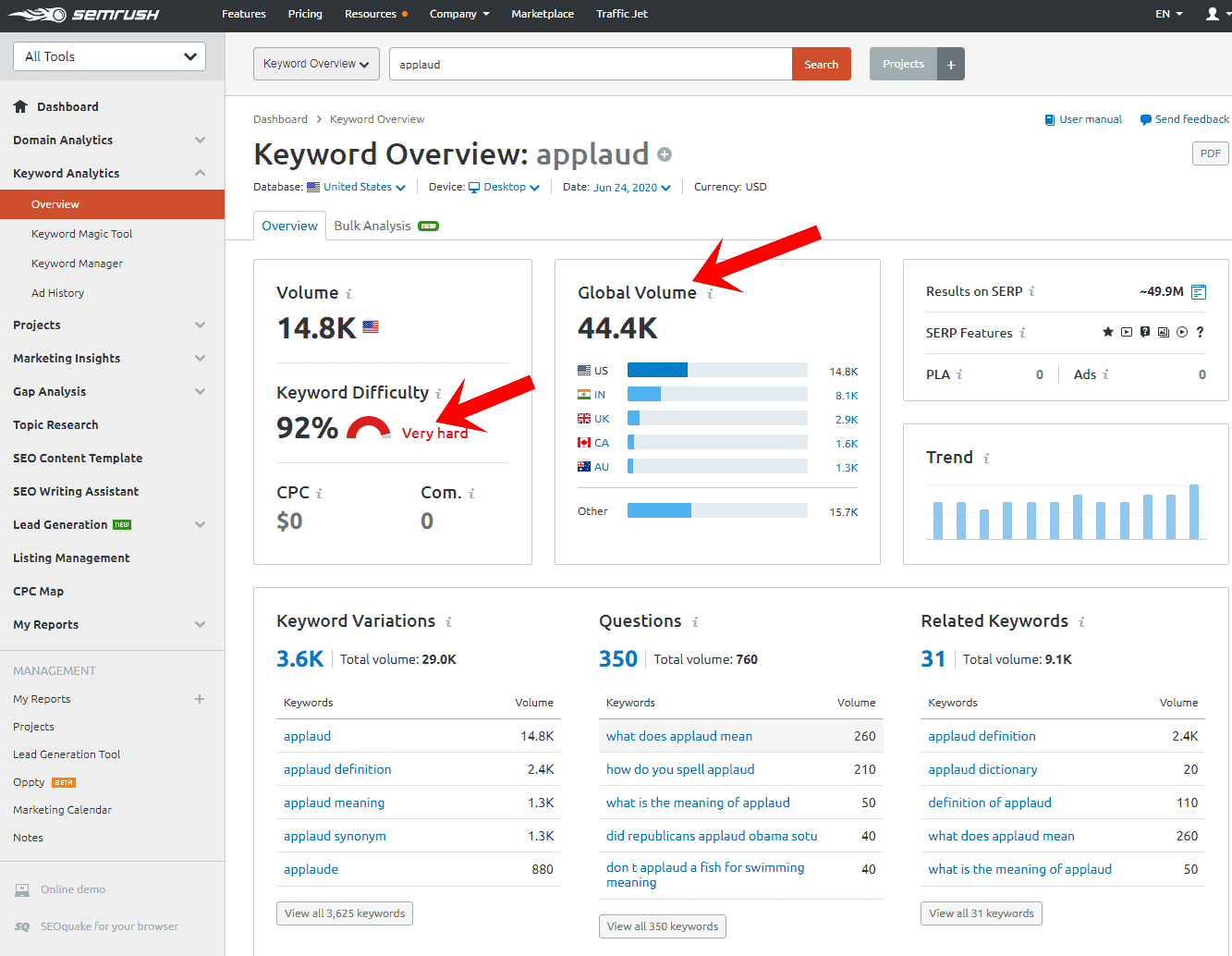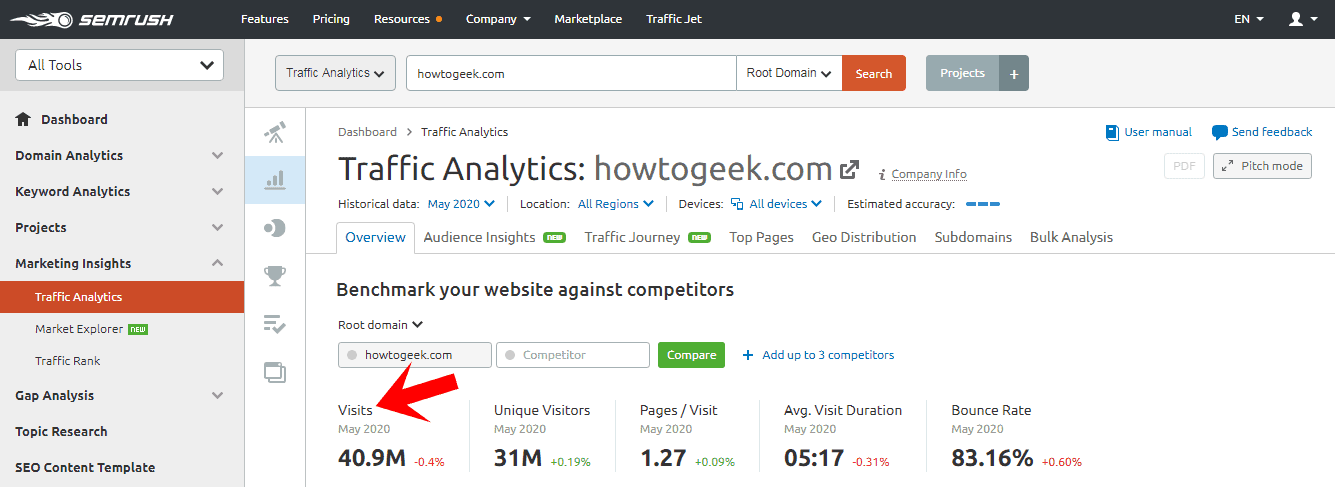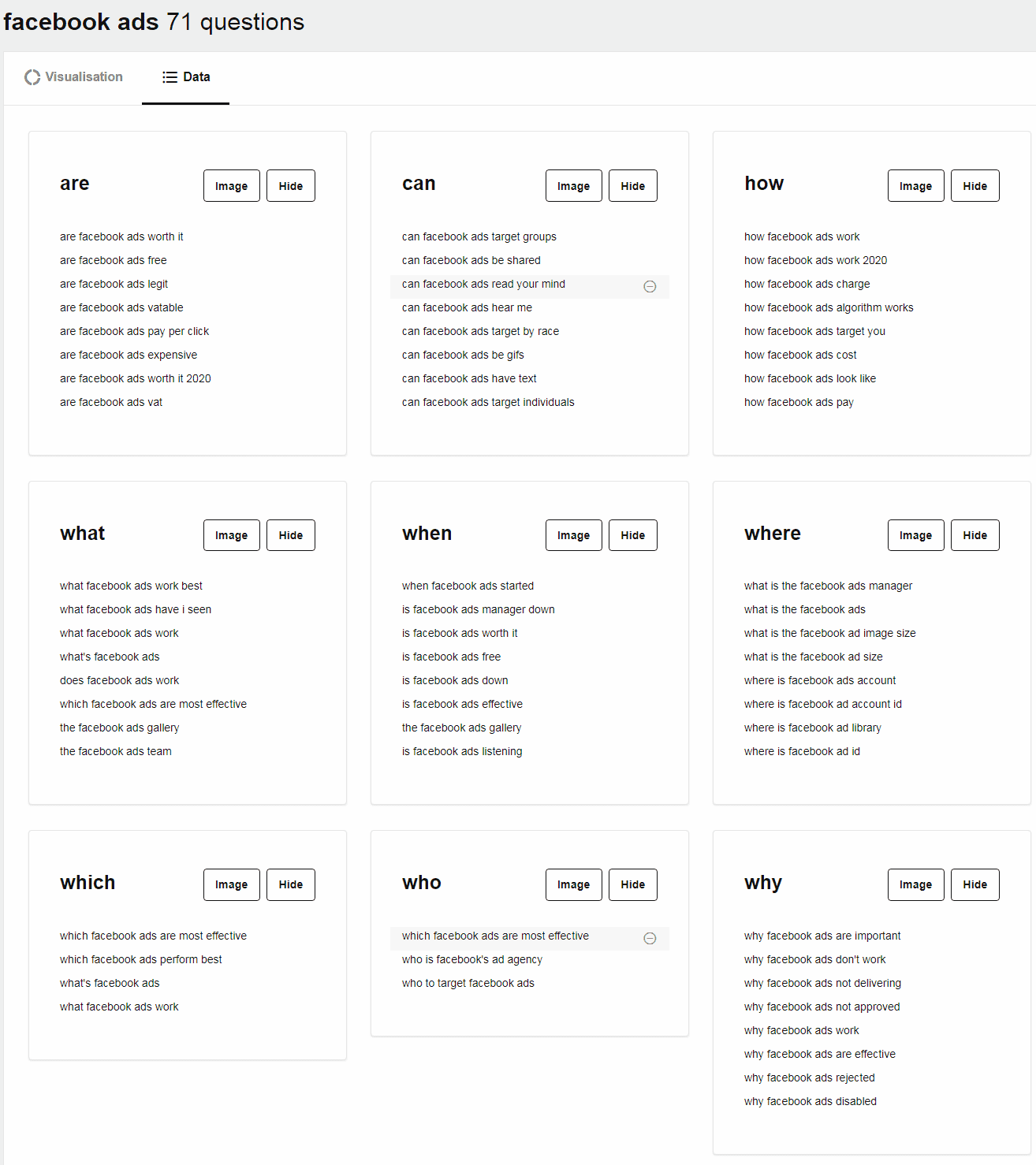Keyword research is a very important part for beginners or to start a new blog. By doing proper keyword research you can increase your website traffic.
So, It is important to plan and research for keyword ideas before you publish any new post.
This is chapter 12 of the free blogging course that covers a total of 18 chapters from basic to advance.
Page Contents
What are Keywords?
Users search for a particular query in Google and we target those words in our blog posts so that it can be rank for that query. Keywords are the words that we use in the content multiple times to target any particular keyword for on-page SEO.
For Example – In this post, My keyword is “Keyword research“. So, I have typed this word multiple times in this post.
Keywords are of two types:
1. Long-tail Keywords
Long-tail keywords are those words that consist of 3 to 6 words. For example, Keyword = how to earn money, increase website traffic, what is keyword research, best places to travel, etc.
The web traffic from search engines is low, medium or it can be high but when you compared it with short-tail keywords then traffic is more on short-tail keywords. Long-tail keywords are less competitive and easy to rank when you compared it with the short-tail keywords.
2. Short-tail Keywords
Short-tail keywords are those words that consist of 1 or 2 words. For example, Keyword = Travel, Fun, Applaud, Consecrate, etc.
The web traffic from search engines is high and competitive for short-tail keywords. So, For the beginners, my suggestion is to try long-tail keywords because it is easy to rank and generate traffic.
What is Keyword Research?
Bloggers, Companies, Affiliate marketers, or any business running on the internet do keyword research to find the traffic on the keyword, the difficulty of that keyword to rank in the search engine, and to find competitor keyword ideas using tools like SEMrush. We have already explained the complete guide on using the SEMrush tool.
Before posting any content on your website You must do keyword research. It helps to analyze the traffic on a particular keyword, monthly searches, keyword difficulty, and competition on the keyword, Adsense CPC, and the countries from where most searches take place on a particular keyword.
Search Intent
Writing content related to the search intent is extremely important for the good user experience, decreasing the bounce rate of the website, increasing the time spend by the user on the website (dwell time), increasing sales, and more.
Search Intent may be for different purposes such as: A user wants to learn something, a user is searching a query to find the solution, to buy something, finding the location, informational intent, to find the latest news, etc.
Therefore, Always write content on the basis of keyword search intent so that it can satisfy the user’s problem. For example – If a person is searching for the titanic movie to watch online then this search intent means he wants to watch the movie titanic.
If you have written content on this keyword then it can not work good and the user leaves your website within a few seconds because his intent is not for the reading but for watching the movie.
Now, Let’s take another example. If a user is searching for the titanic movie review then this search intent means he wants to read a blog post or user reviews. In this case, If you provide a proper guide and internal linking on titanic movie reviews then there are many chances that the user may also read more blog posts related to movie reviews on your website. It also improves the bounce rate, dwell time, user experience, etc.
Basics of Keyword Research
As we already explained what is keyword research. Now, the next thing is the basics of keyword research.
If you are already a blogger or thinking to start blogging then this post will help you to increase your website traffic. Using proper keyword research can also help you to increase the traffic from the search engine to your oldest posts.
Visitors from Google is highly targeted so it can increase a lot of chances to convert visitors into a customer.
Follow these techniques:
Always search the keyword in the tools like SEMrush to know the volume/traffic on the keyword.
Check the keyword difficulty, If it is showing that keyword is difficult to rank then find any other new keyword which is easy to rank
Check the difficulty by searching on Google. Type the keyword on Google and then check the websites showing on the 1st page of Google. You need to check these 4 things: Website domain authority, Page Authority, Backlinks on that particular page, and total words written in the post.
You can check all these things using Google Chrome Free Extensions that we have listed in chapter 11.
Find the number of searches on the keyword using SEO tools.
Use a keyword Research Tool
Keyword research is not possible without an SEO Tool and we suggest SEMrush. It can help you in these ways:
- To know the traffic and monthly searches on a particular keyword
- Find high traffic keyword ideas
- Find low traffic keywords
- Analyze competitor website to find new keyword ideas
- It helps you to know the CPC for any keyword
- It helps you to find competitor’s backlinks and using this you can also make the backlinks on the same websites.
- The SEO Assistant in the SEMrush will help you to write the best content and optimize it to the best level for the on-page SEO
- To find the keyword difficulty and a lot’s more features SEMrush offers that can help your website to grow
Find High Traffic and Low Competition Keyword Ideas
You can randomly search a keyword in the SEMrush tool to find the traffic on the keyword and the competition on the keyword. It will show you the countries name where the keyword is mostly searched, keyword difficulty, related keyword ideas, questions, and answers suggestions.
It can also help you to find the average CPC for any keyword. So, using this you can target high CPC keywords. In this way, you can earn more money from Adsense even if you have low traffic.
The other best thing that you can do to find high traffic and low competition keyword ideas is by doing competitor analysis. In this, you have to type your competitor’s website URL in the SEMrush and then find the keywords for which your competitors or any other websites are ranking.
Competitor Website Analysis
Competitor website analysis is the best way to find new keyword ideas to write a post. You can make a list of at least 50-100 competitor websites and then start the keyword research using the SEMrush competitor analysis feature.
It will show all the keywords on which a website is ranking. To use this, click on marketing insight and then click on traffic analytics.
To show you an example, I have searched the website howtogeek.com in traffic analytics to see the traffic and top-ranking keywords.
If you don’t have a budget or for beginner, Ubbersuggest is a good SEO tool that offers limited free searches in a day.
Use Google to Find New Keyword Ideas
The google-related suggestion is the best way to find new keyword ideas for Short-tail and long-tail keywords.
For example – I have searched only courses for. Now, Google is showing suggestions for different queries. These queries are most probably on the basis of searches by the users.
When you search for anything in Google then at the end of the page you can see related searches. You can use these LSI (Latent Semantic Indexing) keyword ideas to write a post. You can find these keywords at the end of the search engine results page.
Sales Related Keywords Ideas using E-Commerce Websites
You can use famous E-Commerce websites like Amazon, eBay, Aliexpress, Flipkart, etc. for keyword research.
For Example, I have searched for the word “gifts”. Now, Amazon is showing different types of suggestions. You can use these suggestions to get more keyword ideas. So, In this way, you can use famous e-commerce websites to do keyword research for writing a post.
You can use different websites and generate keyword ideas from all the websites and make a list of the keywords.
Ask Your Readers for Questions Suggestion
You can ask your website visitors to suggest questions by using a poll survey, contact page, comments, or plugin. Website visitors can give you new keyword ideas and for this, you can write this thing at the end of every post on your website.
If you have any questions that are still in your mind then you can ask in the comment section or If you have any other type of questions that are not related to this topic then you can write your question using the comment box and we will be happy to solve your doubts. You can also suggest new topics to write a post.
Get Keyword Ideas from Quora, Yahoo Answers, and Other Forums
You can use Quora for keyword research to find new topics and low competitive keywords. There is no doubt that it has become one of the best platforms for bloggers to get new keyword ideas to write a post.
You can also use Yahoo Answers, Reddit, Stackoverflow (for programming blogs), and other forums for keyword research.
I mostly use quora for keyword research. There are lots of questions asked and answered every day on this platform.
You just need to type any keyword related to your website niche and then search for it in Quora. You will find a lot of questions related to the keyword that you have searched.
Type only 1-3 words keywords to find more questions.
For example: If I want to write a post on the topic “Facebook”. Then, in Quora, I will search only for the keyword “Facebook”. Now, Quora will show all the questions related to Facebook. Therefore, Always try to search for 1 or 2-word combinations.
Use Answer the Public
Answerthepublic is an excellent tool for finding long-tail keywords. It is available for free and pro plans are also available. I am using the free plan for keyword research.
To find new long-tail keyword ideas, you can type your query/topic in the search box, select the country and language then click on the search. I suggest you use only 1-2 for the best results.
For Example, I am searching for the word “Facebook Ads“. Now, It is showing all the question ideas for the keyword that I have typed in the search box.
Related Chapters to Read:
- Chapter 1 – How to Start a Blog
- Chapter 2 – Cloudflare Free SSL Setup, Advantages, and Page Rules
- Chapter 3 – Best Web Hosting Companies
- Chapter 4 – Setup a WordPress Website
- Chapter 6 – Submitting a website in the Webmaster Tools and Uploading Sitemap
- Chapter 9 – Off-Page SEO For Beginners: Complete Guide (10 Superb Methods)
- Chapter 10 – How to Make the WordPress Website Loading Speed Fast













